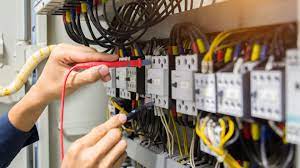Introduction
Electrical maintenance is a crucial aspect of homeownership, ensuring the safety and efficiency of your home’s electrical system. In this guide, we’ll explore the basics of home electrical maintenance, from understanding electrical safety to performing routine inspections and troubleshooting common issues.
Understanding Electrical Safety
Before diving into electrical maintenance tasks, it’s essential to prioritize safety. Familiarize yourself with the location of your home’s circuit breaker panel and how to shut off power to different areas of your home in case of emergencies. Always use insulated tools when working with electricity and avoid overloading outlets or extension cords.
Performing Routine Inspections
Regular inspections can help identify potential electrical problems before they escalate into safety hazards. Check outlets and switches for signs of wear or damage, such as loose fittings or exposed wiring. Inspect cords and plugs for fraying or overheating, and replace any damaged components promptly.
Testing Ground Fault Circuit Interrupters (GFCIs)
GFCIs are designed to protect against electrical shocks by quickly shutting off power in the event of a ground fault. Test GFCI outlets regularly by pressing the “test” button and ensuring that power is cut off. If the outlet does not trip, it may be faulty and should be replaced.
Maintaining Outdoor Electrical Fixtures
Outdoor electrical fixtures, such as lighting and outlets, are exposed to harsh weather conditions and may require additional maintenance. Inspect outdoor wiring for damage and ensure that all connections are weatherproof. Trim foliage away from outdoor fixtures to prevent them from becoming hazards.
Troubleshooting Common Electrical Issues
Familiarize yourself with common electrical problems and how to troubleshoot them. Issues such as flickering lights, tripping circuit breakers, or outlets that don’t work can often be resolved with simple solutions like tightening connections or resetting breakers. However, if you’re unsure or uncomfortable with electrical work, it’s best to consult a professional electrician.
Conclusion
Home electrical maintenance is essential for ensuring the safety and functionality of your home’s electrical system. By understanding electrical safety, performing routine inspections, testing GFCIs, maintaining outdoor fixtures, and troubleshooting common issues, you can keep your home’s electrical system in top condition and minimize the risk of electrical hazards.

